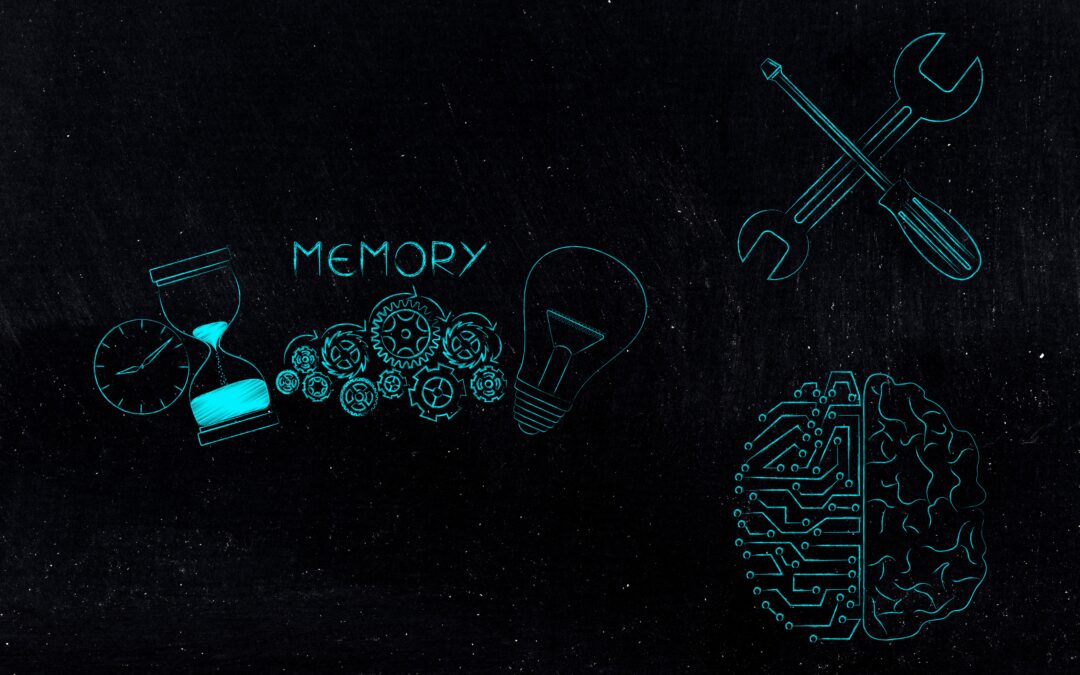Working memory training (WMT) has emerged as a subject of intense interest and debate in cognitive enhancement research. This intervention, designed to improve working memory capacity, has shown potential benefits across various populations and cognitive domains.
Promising Results in Clinical Populations
Several studies have reported positive outcomes of WMT in children with Attention Deficit Hyperactivity Disorder (ADHD). These interventions have demonstrated improvements in working memory capacity and attention (Beck et al., 2010; Green et al., 2012; Egeland, 2013; Gropper et al., 2014; Bigorra et al., 2015). Similarly, stroke survivors have shown enhancements in working memory and attention following WMT interventions (Westerberg et al., 2007; Lundqvist et al., 2010; Johansson et al., 2012; Åkerlund et al., 2013; Björkdahl et al., 2013; Peers, 2018).
WMT has also shown promise in addressing cognitive deficits in children with various neurological conditions (Di Lieto et al., 2021). Notably, childhood cancer survivors experiencing cognitive issues due to treatment effects have demonstrated improvements in working memory and attention after WMT (Hardy, 2012; Conklin, 2015, 2017; Carlsson-Green, 2017).
Broader Cognitive and Academic Implications
Some researchers have made bold claims about WMT’s potential to enhance fluid intelligence (Jaeggi et al., 2008, 2010). Additionally, studies have suggested that WMT may improve academic achievements and intellectual attainment (Bergman-Nutley & Klingberg, 2014; Karbach et al., 2014; Berger et al., 2020).
Replication Challenges and Controversies
Despite these promising findings, the field of WMT research faces significant challenges. Many studies attempting to replicate successful results have failed to demonstrate significant advantages of WMT beyond the domain of working memory itself (Holmes et al., 2009; Chacko et al., 2013; Dunning et al., 2013; Yin et al., 2015; Partanen et al., 2015; Fälth et al., 2015; Roberts et al., 2016).
A notable example of these replication difficulties is the study by Chooi and Thompson (2012), which failed to reproduce the significant improvements in fluid intelligence reported in the original study by Jaeggi et al. (2008). This unsuccessful replication has raised important questions about the robustness and reliability of some reported WMT effects.
Implications for Future Research
The conflicting evidence surrounding WMT underscores the complexity of cognitive enhancement research. While some studies have shown promising results, the inconsistency in replication attempts suggests that the effects of WMT may be more nuanced or context-dependent than initially thought.
As research in this field progresses, it will be crucial to:
1. Identify specific conditions under which WMT is most effective
2. Develop a more comprehensive understanding of its underlying mechanisms
3. Investigate potential limitations and boundary conditions of WMT effects
By addressing these challenges, researchers can work towards a more nuanced and evidence-based understanding of WMT’s potential as a cognitive enhancement tool.
References
Åkerlund, E., Esbjörnsson, E., Sunnerhagen, K. S., & Björkdahl, A. (2013). Can computerized working memory training improve impaired working memory, cognition and psychological health? Brain Injury, 27(13-14), 1649-1657. https://doi.org/10.3109/02699052.2013.830195
Beck, S. J., Hanson, C. A., Puffenberger, S. S., Benninger, K. L., & Benninger, W. B. (2010). A controlled trial of working memory training for children and adolescents with ADHD. Journal of Clinical Child & Adolescent Psychology, 39(6), 825-836. https://doi.org/10.1080/15374416.2010.517162
Berger, E. M., Fehr, E., Hermes, H., Schunk, D., & Winkel, K. (2020). The impact of working memory training on children’s cognitive and noncognitive skills. SSRN Electronic Journal. https://doi.org/10.2139/ssrn.3622985
Bergman-Nutley, S., & Klingberg, T. (2014). Effect of working memory training on working memory, arithmetic and following instructions. Psychological Research, 78(6), 869-877. https://doi.org/10.1007/s00426-014-0614-0
Bigorra, A., Garolera, M., Guijarro, S., & Hervás, A. (2015). Long-term far-transfer effects of working memory training in children with ADHD: A randomized controlled trial. European Child & Adolescent Psychiatry, 25(8), 853-867. https://doi.org/10.1007/s00787-015-0804-3
Björkdahl, A., Åkerlund, E., Svensson, S., & Esbjörnsson, E. (2013). A randomized study of computerized working memory training and effects on functioning in everyday life for patients with brain injury. Brain Injury, 27(13-14), 1658-1665. https://doi.org/10.3109/02699052.2013.830196
Carlsson-Green, B., Puschmann, A.-K., Petersson, L. M., Lundgren, J., Tomaszewska-Andersz, E., & Lönnerblad, M. (2017). Computer-based training for working memory in children with acquired brain injury: A pilot study. Brain Injury, 31(13-14), 1856-1865. https://doi.org/10.1080/02699052.2017.1346284
Chacko, A., Bedard, A. C., Marks, D. J., Feirsen, N., Uderman, J. Z., Chimiklis, A., Rajwan, E., Cornwell, M., Anderson, L., Zwilling, A., & Ramon, M. (2013). A randomized clinical trial of Cogmed Working Memory Training in school-age children with ADHD: A replication in a diverse sample using a control condition. Journal of Child Psychology and Psychiatry, 55(3), 247-255. https://doi.org/10.1111/jcpp.12146
Chooi, W.-T., & Thompson, L. A. (2012). Working memory training does not improve intelligence in healthy young adults. Intelligence, 40(6), 531-542. https://doi.org/10.1016/j.intell.2012.07.004
Conklin, H. M., Ogg, R. J., Ashford, J. M., Scoggins, M. A., Zou, P., Clark, K. N., Martin-Elbahesh, K., Hardy, K. K., Merchant, T. E., Jeha, S., Huang, L., & Zhang, H. (2015). Computerized cognitive training for amelioration of cognitive late effects among childhood cancer survivors: A randomized controlled trial. Journal of Clinical Oncology, 33(33), 3894-3902. https://doi.org/10.1200/jco.2015.61.6672
Di Lieto, M. C., Pecini, C., Castro, E., Inguaggiato, E., Cecchi, F., Dario, P., Cioni, G., & Sgandurra, G. (2021). Improving executive functions in primary school: A randomized controlled trial for children with developmental language disorder. Journal of Speech, Language, and Hearing Research, 64(3), 1079-1096. https://doi.org/10.1044/2020_jslhr-20-00326
Dunning, D. L., Holmes, J., & Gathercole, S. E. (2013). Does working memory training lead to generalized improvements in children with low working memory? A randomized controlled trial. Developmental Science, 16(6), 915-925. https://doi.org/10.1111/desc.12068
Egeland, J., Aarlien, A. K., & Saunes, B.-K. (2013). Few effects of far transfer of working memory training in ADHD: A randomized controlled trial. PLoS ONE, 8(10), e75660. https://doi.org/10.1371/journal.pone.0075660
Fälth, L., Jaensson, L., & Johansson, K. (2015). Working memory training – a cogmed intervention. International Journal of Learning, Teaching and Educational Research, 14(2), 28-35.
Green, C. T., Long, D. L., Green, D., Iosif, A.-M., Dixon, J. F., Miller, M. R., Fassbender, C., & Schweitzer, J. B. (2012). Will working memory training generalize to improve off-task behavior in children with attention-deficit/hyperactivity disorder? Neurotherapeutics, 9(3), 639-648. https://doi.org/10.1007/s13311-012-0124-y
Gropper, R. J., Gotlieb, H., Kronitz, R., & Tannock, R. (2014). Working memory training in college students with ADHD or LD. Journal of Attention Disorders, 18(4), 331-345. https://doi.org/10.1177/1087054713516490
Hardy, K. K., Willard, V. W., Allen, T. M., & Bonner, M. J. (2012). Working memory training in survivors of pediatric cancer: A randomized pilot study. Psycho-Oncology, 22(8), 1856-1865. https://doi.org/10.1002/pon.3222
Holmes, J., Gathercole, S. E., & Dunning, D. L. (2009). Adaptive training leads to sustained enhancement of poor working memory in children. Developmental Science, 12(4), F9-F15. https://doi.org/10.1111/j.1467-7687.2009.00848.x
Jaeggi, S. M., Buschkuehl, M., Jonides, J., & Perrig, W. J. (2008). Improving fluid intelligence with training on working memory. Proceedings of the National Academy of Sciences, 105(19), 6829-6833

As a research scientist in cognitive neuroscience and psychology, I write a blog exploring computational modeling and gamified working memory training. I share insights from my research on how these approaches impact learning and cognition in both typical and clinical populations, with a focus on cognitive rehabilitation for brain injuries, neurodegenerative, and neurodevelopmental conditions. My blog also covers cognitive, emotional, and behavioral assessment, the influence of biopsychosocial factors, and the application of machine learning in neuropsychological interventions. By translating complex science into accessible content, I aim to inform professionals and the public about brain health and cognitive science.
Dorota Styk


